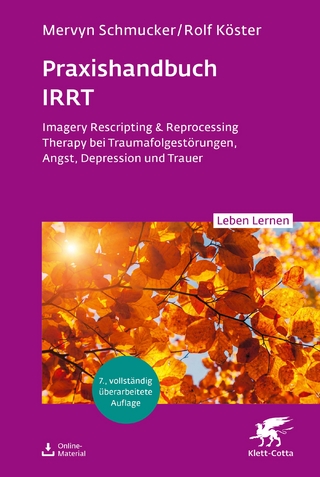
Substance Abuse
Greenwood Press (Verlag)
978-1-4408-6055-3 (ISBN)
Whether it's alcohol, tobacco, recreational drugs, or prescription medications, substance abuse can have devastating consequences for an individual's short- and long-term health. It can also have far-reaching impacts on psychological well-being, relationships, and finances. A part of Greenwood's Q&A Health Guides series, Substance Abuse: Your Questions Answered provides clear, concise information for readers interested in or struggling with this difficult subject. It explores the substances most frequently abused in the United States, the causes and effects of their abuse, treatment options, and the role that popular culture and the media have in shaping our understanding of these behaviors.
Each book in this series follows a reader-friendly question-and-answer format that anticipates readers' needs and concerns. Prevalent myths and misconceptions are identified and dispelled, and a collection of case studies illustrates key concepts and issues through relatable stories and insightful recommendations. The book also includes a section on health literacy, equipping teens and young adults with practical tools and strategies for finding, evaluating, and using credible sources of health information both on and off the internet—important skills that contribute to a lifetime of healthy decision-making.
Romeo Vitelli received his doctorate in Psychology from York University in Toronto, Ontario, in 1987 and has been in private practice since 2003.
Series Foreword
Acknowledgments
Introduction
Guide to Health Literacy
Common Misconceptions about Substance Abuse
Questions and Answers
General Information
1. What is substance abuse and dependence?
2. What is the difference between physiological and psychological dependence?
3. What are the most commonly abused substances?
4. What are some of the most common signs of substance addiction?
5. How can substance abusers tell that their abuse is out of control?
6. How widespread is substance abuse?
7. How far back in history does substance abuse go?
8. Is there really such a thing as a gateway drug?
9. Is there a substance abuse epidemic?
Causes and Risk Factors
10. What makes some people so vulnerable to substance abuse?
11. Is substance abuse linked to trauma?
12. What makes age of first drug or alcohol use so important?
13. What about prenatal drug or alcohol exposure?
14. Why are opioids so addictive?
15. Can peer pressure lead to substance abuse?
16. Is there such a thing as an addictive personality?
17. Is substance abuse linked to poor parenting?
18. Is substance abuse genetic?
19. Are sexual minorities more vulnerable to substance abuse?
20. Are military veterans coping with trauma more likely to become substance abusers?
Consequences of Substance Abuse
21. How quickly can someone become addicted to drugs or alcohol?
22. Are substance abusers at risk for suicide?
23. How does substance use affect the brain?
24. Do some drugs of abuse have medical benefits?
25. What are some of the short-term consequences of substance abuse?
26. What are the long-term consequences of substance abuse?
27. How does substance abuse affect families?
28. Why is substance abuse so common in prisons?
29. What are the real costs of substance abuse to society?
Culture, Media, and Substance Abuse
30. How do different cultures view substance abuse?
31. How effective is workplace and school drug testing in helping substance abusers?
32. Do zero tolerance policies work to control substance use?
33. Can media stories about substance abuse do more harm than good?
34. Is there an online substance abuse subculture?
35. Do drug prevention programs work?
36. Should drug use be legalized?
37. Should recreational use of marijuana be legal?
Treatment, Prevention, and Life after Substance Abuse
38. What are some of the most common forms of treatment for children and adults who abuse drugs and alcohol?
39. Can't drug or alcohol users just quit cold turkey?
40. What is drug or alcohol detoxification?
41. What is a treatment plan?
42. What is relapse prevention?
43. Do twelve-step programs really work?
44. What is harm reduction?
45. What is cognitive behavioral therapy?
46. What is mindfulness therapy?
47. What can parents do to help children who are substance abusers?
48. Do online support groups help prevent future substance abuse?
49. Does the risk of backsliding ever go away?
50. Can substance abusers learn to move on with their lives?
Case Studies
Glossary
Directory of Resources
Index
About the Author
| Erscheinungsdatum | 11.07.2018 |
|---|---|
| Reihe/Serie | Q&A Health Guides |
| Sprache | englisch |
| Maße | 156 x 235 mm |
| Gewicht | 454 g |
| Themenwelt | Sachbuch/Ratgeber ► Gesundheit / Leben / Psychologie ► Psychologie |
| Geisteswissenschaften ► Psychologie ► Sucht / Drogen | |
| ISBN-10 | 1-4408-6055-6 / 1440860556 |
| ISBN-13 | 978-1-4408-6055-3 / 9781440860553 |
| Zustand | Neuware |
| Informationen gemäß Produktsicherheitsverordnung (GPSR) | |
| Haben Sie eine Frage zum Produkt? |
aus dem Bereich


